- Home
- Thomas Harris
Black Sunday Page 30
Black Sunday Read online
Page 30
The hook trailed beneath the helicopter on a thirty-foot cable. Jackson dropped until the hook slipped over the blimp’s slick skin. The only opening was the space between the rudder and the fin beneath the rudder hinge. Kabakov was coaching Jackson, and they got it close, dose, but the hook was too thick.
They were stampeding in the stadium. Kabakov looked around him desperately and he saw, coiled in a clip on the wall, a length of three-quarter-inch nylon rope with a snap shackle in each end. In the half second he stared at it, he knew with an awful certainty what he had to do.
From the ground, Moshevsky watched, his eyes bulging, fists clenched as the figure appeared, sliding spiderlike down the cable beneath the helicopter. He snatched the field glasses from an agent beside him, but he knew before he looked. It was Kabakov. He could see the rotor blast tearing at Kabakov as he slid down the greasy cable. A rope was tied around his waist. They were over Moshevsky now. Straining back to see, Moshevsky fell on his rear and never stopped watching.
Kabakov had his foot in the hook. Corley’s face was visible in the opening in the belly of the chopper. He was talking in the headset. The hook slid down, Kabakov was beside the fin, no! The fin was rising, swinging. It hit Kabakov and knocked him away, he was swinging back, passing the length of rope between the rudder and the fin, beneath the top rudder hinge, snapping it in a loop through the hook, one arm waving, and the helicopter strained upward, the cable hardening along Kabakov’s body like a steel bar.
Lander, crawling along the blood-slick floor of the gondola toward the fuse, felt the floor tilt sharply. He was sliding and scrabbled for a handhold on the floor.
The helicopter clawed the air. The tail of the blimp was up at fifty degrees now, the nose bumping against the football field. The spectators screaming, running, the exits jammed as they fought to get out. Lander could hear their cries all around him. He strained toward the fuse, lighter in hand.
The nose of the blimp dragged up the stands, the crowd scattering before it. It caught on the flagpoles at the top of the stadium, and lurched over, clear and moving over the houses toward the river, the helicopter’s engine screaming. Corley, looking down, could see Kabakov standing on the fin, holding on to the cable.
“We’ll make the river, we’ll make the river,” Jackson said over and over, as the temperature gauge climbed into the red. His thumb was poised over the red drop button.
Lander heaved himself the final foot up the slanting floor and thumbed his lighter.
Moshevsky tore his way to the top of the stands. The helicopter, the blimp, the man standing on the fin, hung over the river for one instant, fixed forever in Moshevsky’s mind, and then they were gone in a blinding flash of light and a Doomsday crack that flattened him on the shuddering stands. Shrapnel slashed the trees beside the river as the blast uprooted them, and the water, whipped to foam, was blown out in a great basin that filled again with a roar of its own, the water rising in a mountainous cone into the smoke. And seconds later, far downriver, spent shrapnel pocked the water like hail and rattled off the iron hulls of ships.
Miles away, finishing a late lunch at the Top of the Mart overlooking the city, Rachel saw the flash. She rose, and then the tall building trembled, the windows shattered, and she was on her back, glass still falling and, looking up at the underside of the table, she knew. She struggled to her feet. A woman sat on the floor beside her, mouth hanging open.
Rachel looked at her. “He’s dead,” Rachel said.
The final casualty list totaled 512. At the stadium fourteen were trampled to death in the exits, fifty-two suffered fractures in the struggle to escape, and the rest had cuts and bruises. Among those cut and bruised was the president of the United States. His injuries were suffered when ten Secret Service men piled on top of him. In the town, 116 persons received minor injuries from flying glass, as windows were blasted in.
At noon on the following day, Rachel Bauman and Robert Moshevsky stood on a small pier on the north bank of the Mississippi River. They had been there for hours, watching the police boats drag the bottom. The dragging had gone on all night. In the first few hours, the grapnels had brought up a few charred pieces of metal from the helicopter. Since then, there was nothing.
The pier on which they stood was riddled and splintered with shrapnel. A large dead catfish bumped against it in the current. The fish was punched full of holes.
Moshevsky remained impassive. His eyes never left the police boats. Beside him on the pier was his canvas suitcase, for in three hours he would take Muhammad Fasil back to Israel to stand trial for the Munich massacre. The El Al jet that was coming for them also contained fourteen Israeli commandos. It was felt that they would provide a suitable buffer between Moshevsky and his prisoner on the long flight home.
Rachel’s face was swollen, and her eyes were red and dry. She had cried herself out on the bed in the Royal Orleans, fingers locked in a shirt of Kabakov’s that reeked of his cigars.
The wind was cold off the river. Moshevsky put his jacket around Rachel. It hung below her knees.
Finally, the lead boat sounded a single long blast. The police fleet pulled in their empty grapnels and started downstream. Now there was only the river, moving in a solid piece toward the sea. Rachel heard a strange, strangled sound from Moshevsky, and he turned his face away. She pressed her cheek against his chest and reached her arms as far around him as they would go and patted him, feeling the hot tears falling in her hair. Then she took his hand and led him up the bank as she would lead a child.

 The Silence of the Lambs
The Silence of the Lambs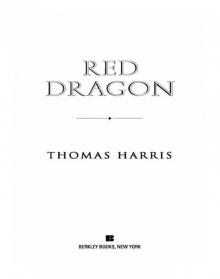 Red Dragon
Red Dragon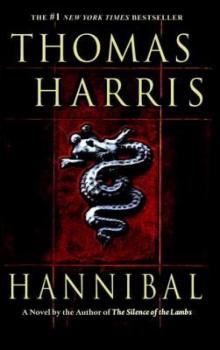 Hannibal
Hannibal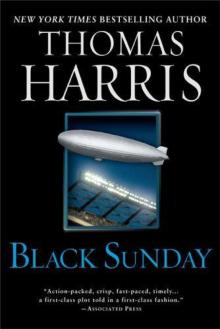 Black Sunday
Black Sunday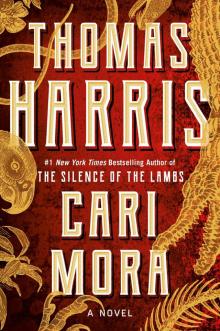 Cari Mora
Cari Mora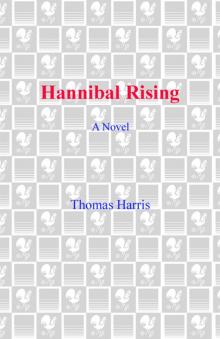 Hannibal Rising
Hannibal Rising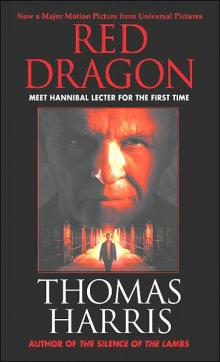 Red Dragon hl-1
Red Dragon hl-1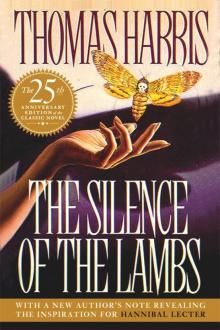 The Silence of the Lambs (Hannibal Lecter)
The Silence of the Lambs (Hannibal Lecter)